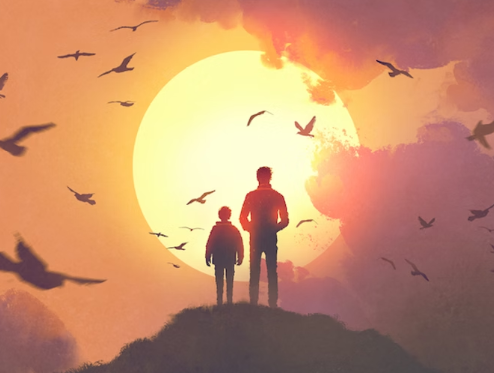you don't see
the urge on a random saturday to pick apart every insecurity, you know?

i am the way i am and here's why
where you see a smiling face,
im reminded of a father who laughed at his own jokes
where my skin is a normal brown now but,
im reminded of the time i was told
id be alone forever
my eyes look so tired but
you don't see its because of the darkness around them
nights of wake to contemplate if i should tell my mom
that dad had 4, not 3 packs of cigs in his right pocket today
she already could smell it so what's the point
ill just write it down so it stops eating away at me
back to my eyes and the deep caves under them,
i hate taking pictures
my mother looks like a sister
my mother. looks. like a sister
she has deep caves too
but at least she's fair
let's talk about my nails
14 years of damage done
irreversible, unhealthy size
you always asked me why i did this
well at least i wasn't smoking
or throwing plates at the wall.
after i left home and you couldn't hit me for the biting
i had nothing to run away from but myself in the mirror
so you won't see the 14 years now
because kiss brand press-ons were easy to figure out
and we'll end on my hair for now
there's far too much here
it never was my own according to mother
she put her blood, sweat, and tears into it
god forbid i chop it all off
well, i did
i couldn't stand it falling out, thinning
getting rougher in texture, curlier in nature
because i work and then my brain works overtime
it all meant im becoming what mother compared me to
so i chopped it
let's hope i get married
my therapist told me,
"i make sense"
i don't want to look like father
nor have the blemishes from mother
so look at me and you'll see me
but i look at me and see everything im not
Reflection
"you don't see" is perhaps my most vulnerable poem, a raw inventory of insecurities and inherited trauma. It's written as a direct address to an unnamed "you"—perhaps a lover, friend, or therapist—explaining why the speaker is the way they are by cataloging the invisible wounds that shape their self-perception.
The poem moves systematically through different parts of the body—face, skin, eyes, nails, hair—but each physical feature becomes a doorway into deeper emotional territory. The tired eyes aren't just from lack of sleep, but from "nights of wake to contemplate" whether to protect or expose a parent's addiction. The bitten nails represent 14 years of anxiety and self-harm as a coping mechanism.
The hair section is particularly powerful, exploring how even our most personal choices about our bodies can become battlegrounds with family expectations. "it never was my own according to mother" captures the way children, especially daughters, can feel like their bodies belong to their families rather than themselves.
The poem ends with a devastating contradiction: "so look at me and you'll see me / but i look at me and see everything im not." This captures the fundamental disconnect between how others perceive us and how we see ourselves when we're carrying invisible trauma. The therapist's validation that "i make sense" offers a small glimmer of hope—that perhaps these reactions and insecurities are reasonable responses to unreasonable circumstances.